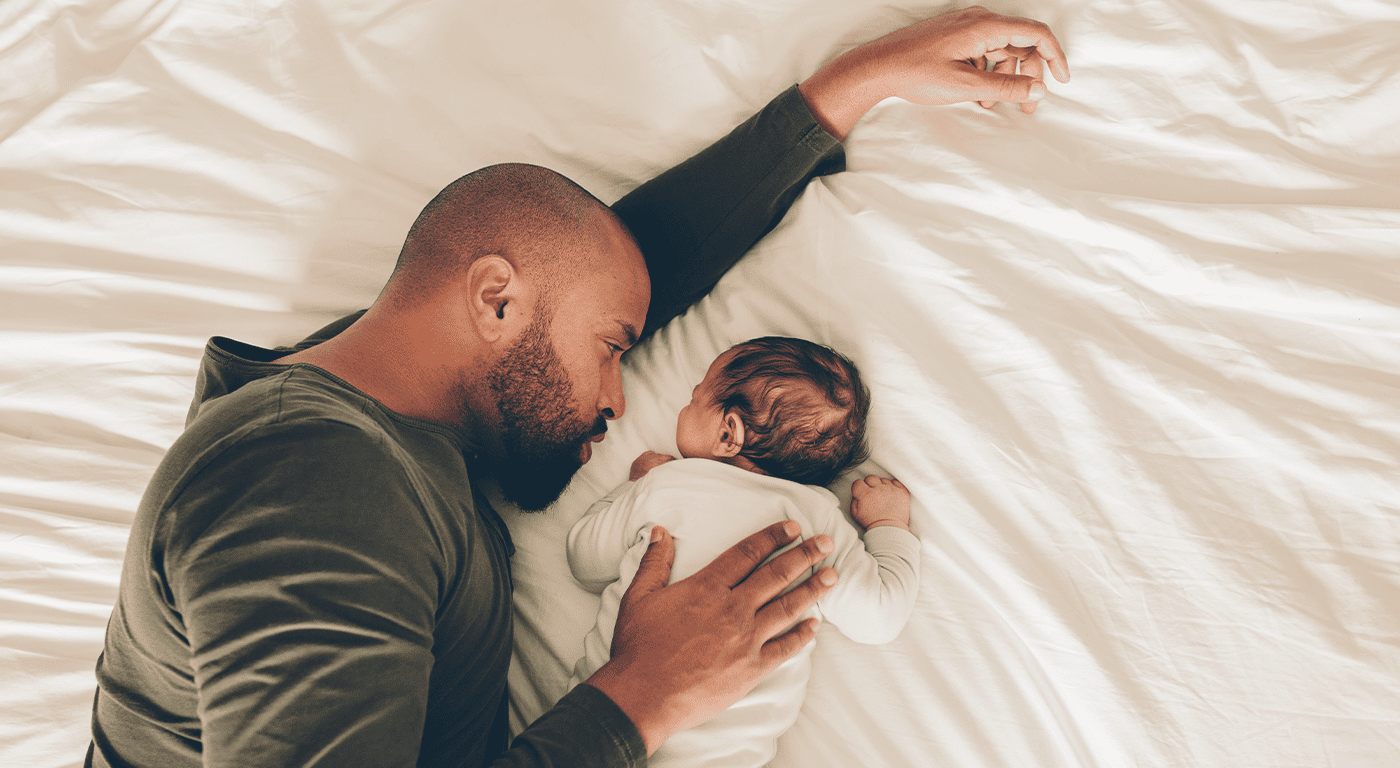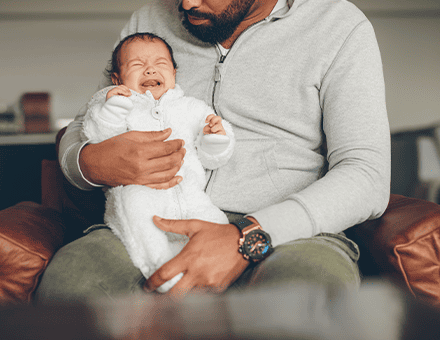Paternal postpartum depression explained

Postpartum depression is well-documented in women — but did you know that dads can suffer from it, too? Supporting your partner through this means being willing to face the facts...
Everyone knows that pregnancy, birth and the early stages of motherhood are no picnic for women. Postpartum depression in new moms gets plenty of airtime (and justifiably so), but the fact that many first-time (and even second-or third-time) fathers can also experience depression and anxiety is less widely known.
“I have certainly encountered this phenomenon in my practice and in postnatal groups that I’ve facilitated,” says Johannesburg clinical psychologist Dr Lynette Roux. “And I think it deserves far more recognition than it gets.”
One study, published in the Journal of the American Medical Association, found that one in 10 men around the world suffer from paternal postpartum depression (PPPD), and that it was likely to occur in the three- to six-month period after the birth of the child, “but might insidiously develop over a year rather than four weeks postpartum”.
Other reports say that the number of men who become depressed in the first year after becoming a dad is double that of the general population who present with depression.

We are supposed to feel elated when we become parents – expressing anything other than joy is taboo

Why does it happen?
The reasons new dads experience debilitating depression or anxiety are not particularly surprising. Dr Roux says that many men feel a deep sense of responsibility (or pressure) to provide for their child financially. They are likely to be financially responsible for the mother as well, following the birth, which can cause enormous stress. This is then coupled with a dramatic change in lifestyle as well as sleep deprivation.
“In addition, the father’s relationship with the mother is also a factor — there may be reduced intimacy between partners, and she may be too tired or focused on the infant to give attention to her partner. She might be disengaged or become overly controlling, or be suffering from postpartum depression herself. A new mom’s resources are stretched to capacity,” Dr Roux explains.
“Any or all of these factors could also potentially trigger unresolved trauma around his own mother or father, or his upbringing.”
This begs the question: are some men more susceptible to new-father blues than others? “Certainly, men who have a history of clinical depression or anxiety are more at risk,” says Dr Roux. “Men who have low self-esteem, or who had traumatic childhood circumstances, or those in difficult economic situations, could also be susceptible.”
Most men experiencing PPPD may feel guilty or berate themselves, leading to negative self-talk. But Dr Roux points out that it is a completely natural, normal and human response to a big change.
“Men, in particular, may view not being able to cope as ‘pathetic’ or `weak’; in other words, unmanly, and this can compound matters.
“Society also conveys the message that we are supposed to feel elated when we become parents — expressing anything other than joy is taboo. Joy is, of course, part of the parent equation, but it’s certainly not the whole picture,” says Dr Roux. “Men may hide the fact that they’re struggling. We call it ‘smiling depression’, where outwardly everything seems fine but inside he may be falling apart.”
Signs to look for
Symptoms of PPPD are generally the same as those of a major depressive episode (MDE), which is considered present when five or more of the following symptoms develop within a year postpartum:
- depressed mood
- diminished interest in previously enjoyed activities
- insomnia
- significant weight loss or gain
- fatigue
- feelings of worthlessness
- feelings of excessive guilt
- indecisiveness or a reduced ability to concentrate
- recurring thoughts of death/suicide
Social withdrawal, irritation or angry outbursts, cynicism or substance abuse might also occur. If you notice any of these symptoms in your partner, it may be time to intervene and get professional help.
The treatment options
“Asking for help is a very courageous thing to do,” says Dr Roux. Therapy is the best place to begin treatment for PPPD, where a father can unpack his feelings, feel heard and learn new coping skills.
Medication to treat depression and anxiety can also be helpful, in conjunction with therapy, in helping new dads to cope until they find their bearings again.
Getting Help
If you or your partner are displaying symptoms of PPPD or MDE, or are simply struggling to cope, contact the South African Depression and Anxiety Group on 0800 567 567 or visit sadag.org
By: Robyn MacLarty
Text courtesy of Jet Club magazine
Related articles

Latest Jet club magazine
We’ve got the latest trends, exciting prizes and exclusive savings just for you!
Jet Club will not pass your details to anyone else. By clicking the subscribe button you confirm you have read and agree to the Jet Club Terms and conditions and Jet Club Privacy Statement.
Subscribe

